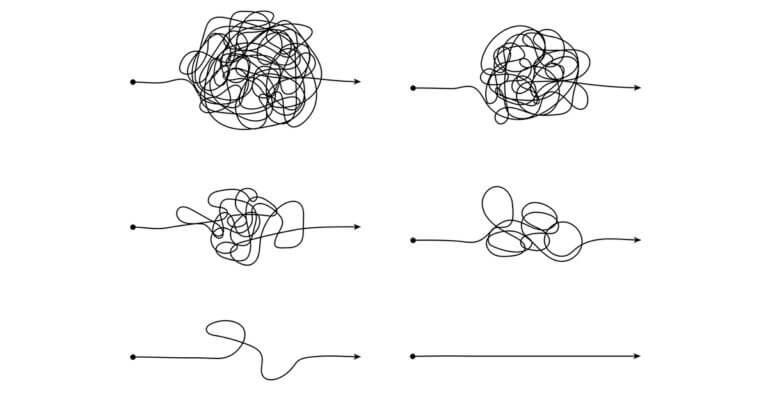July 31, 2017

Senate Republicans Confront Their Healthcare Waterloo: Now What?
Last weekend Senators Jerry Moran of Kansas and Mike Lee of Utah announced they could not support Speaker Mitch McConnell’s Better Care Reconciliation Act of 2017 (BCRA). Their defections put the final nails in the BCRA’s coffin. McConnell no longer has enough Republican votes to even debate the BCRA legislation in the Senate. Now what?
Senator Mitch McConnell is the most effective Senate Majority Leader since Lyndon Johnson. A tactical maestro, McConnell faces the seeming impossible task of uniting the Republican party’s conservative and moderate wings to pass health reform legislation.
With a slim 2-vote majority and no Democratic support, McConnell has almost no room for error. Along with President Trump, Senator McConnell feels enormous pressure to make good on the Republican Party’s long-standing pledge to repeal Obamacare.
Confronting this challenge, McConnell negotiated the provisions of the BCRA in secret and initially planned a quick vote once the unpopular legislation became public. With a full arsenal of “carrots and sticks,” McConnell’s goal is to place maximum pressure on wavering Republican senators to vote in favor of the bill.
The Congressional Budget Office (CBO) dealt a significant blow to McConnell’s fast-track scheduling. CBO concluded the BCRA would reduce the federal deficit by $321 billion over ten years at the expense of 22 million people losing health insurance coverage and raising health insurance premiums significantly for older and/or sicker Americans.
After the CBO’s announcement, McConnell postponed BCRA debate until after the July 4th holiday. Opposition to the BCRA intensified. Two weeks later, the BCRA is dead. May it rest in peace.
The founding fathers designed Senate procedure to be deliberative, not rushed. The differing conservative and moderate perspectives on the BCRA have exposed the demons bedeviling Republican attempts to overturn Obamacare. With less than a 20% approval rating, the American people rendered the following judgements on the BCRA:
- Pursuing tax cuts at the expense of constructive health system reform is counter-productive;
- Health reform that fails to cover the sickest and most vulnerable in society is cruel; and
- Healthcare reform that increases income inequality and places greater pressure on low and middle income Americans is unfair.
McConnell wants to pass healthcare reform, and it’s dangerous to underestimate his legislative prowess. Time will tell whether the BCRA is his healthcare Waterloo or a stimulant for new legislation that expands coverage, improves care delivery and lowers costs.
Make no mistake. Obamacare and American healthcare overall have deep structural flaws that require major overhaul. The United States’ standard of living is among the world’s highest despite its excessively expensive, highly inefficient and often ineffective healthcare system.
We the people pay for U.S. healthcare’s profligacy. Delivering better healthcare at lower cost would free-up enormous resources to invest in more productive industries and pay average workers higher wages.
America already spends 18% of its economy on healthcare. That’s 50% higher than the next large economy (France) with the highest GDP expenditure level (12%). There is enough funding within the U.S. healthcare system to provide superior care services to everyone in the country.
Constructive health reform does not require more money. It does require redistributing healthcare resources away from acute and specialty care and into preventive health, chronic disease management and behavioral health services. It also demands greater transparency, lower administrative costs and balanced regulatory oversight.
The challenge isn’t what to do. It’s how to do it. Now that the BCRA is dead, Congress must find ways to stabilize health insurance markets, encourage innovation, increase coverage, improve access and reduce inequality.
The following types of market-based reforms can transform American healthcare delivery through better outcomes, lower costs and enhanced customer experience:
- Deploying value-based payment models that reward appropriate, holistic and affordable care and results
- Equalizing tax treatment for purchasing health insurance across individual and employer markets
- Applying tax credits more liberally to fund health savings accounts
- Expanding health savings accounts to incentivize wellness and prevention
- Not discriminating against individuals with pre-existing conditions
- Requiring cost and benefit transparency in all health plans
- Enabling greater state flexibility in administering Medicaid programs
- Eliminating “free-riding” or gaming in accessing health insurance through penalties and/or mandates
- Creating large beneficiary pools for distributing and managing health insurance risk
- Exempting risk-based providers from fee-for-service regulatory provisions designed to prevent inappropriate utilization (e.g. Stark Law)
America’s innovation machine is its secret weapon in driving health reform. Unprecedented amounts of “smart” private equity and venture funding are flowing into healthcare. Forward-thinking entrepreneurs with creative new business models and intelligent technologies are attacking the system’s deeply-embedded inefficiencies. They’ll win market share by solving problems and delivering better value to customers.
With high-functioning healthcare marketplaces, the United States could become the first advanced economy to provide universal health coverage largely through commercial insurance provision.
Today, America pays more and gets less for its healthcare expenditures than other advanced economies. It’s now time for American healthcare to leapfrog other systems through better resource allocation, continuous performance improvement and consumerism. Outcomes matter. Customers count. Value rules.





